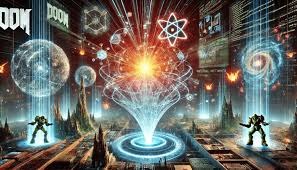Are you interested in how neural networks work and what their future holds? Make a successful bet and read about how the topic of neural networks is explored in movies.
Not long ago, neural networks seemed like something distant and fantastical, but today they are actively changing our lives. One of the most exciting areas where they are being applied is cinema. From creating special effects to fully AI-generated films, the future of the industry may change faster than we think. Let’s explore what’s coming next!
How Are Neural Networks Already Used in Cinema?
You might not even realize it, but neural networks have been helping directors, artists, and editors for quite some time. Here are some key examples:
- Deep Image Restoration – AI can enhance old films by increasing their resolution and restoring lost details. Recently, classics have been restored this way—old black-and-white movies have gained color and sharpness.
- Face Generation – The “deepfake” technology allows actors’ faces to be seamlessly placed onto other people’s bodies. Remember the young Luke Skywalker in The Mandalorian? That was the work of neural networks!
- Automatic Dubbing – Artificial intelligence can now synchronize characters’ lip movements with translated dialogues, making dubbing feel much more natural.
- Scriptwriting – While AI-generated scripts are still somewhat nonsensical, there are already short films written by neural networks. For example, Sunspring was entirely scripted by AI.
What Can We Expect in the Near Future?
Now, let’s look ahead and imagine how neural networks could reshape the film industry in the coming years.
1. Fully AI-Generated Films
Currently, AI assists with individual aspects of filmmaking, but what if it soon learns to create entire movies from scratch? Imagine describing a plot, and AI writes the script, selects (virtual) actors, generates scenes, and produces voiceovers. This could be a true revolution—perhaps in the future, anyone could “film” their own movie without actors or film crews!
2. Virtual Actors
Hollywood is already experimenting with digital replicas of real actors. For example, Carrie Fisher was recreated in Star Wars after her passing using neural networks. But imagine seeing completely new “actors” who never existed! They could become superstars—without ever getting tired, demanding salaries, or aging.
3. Personalized Movies
Adaptive scripts that change based on the viewer’s preferences—this sounds like science fiction, but it’s entirely possible that in the future, AI will tailor plots to individual viewers. Love happy endings? The film will adjust accordingly. Prefer a thriller over romance? AI will modify the storyline in real time.
4. A Revolution in Special Effects
Neural networks are already helping create incredible visual effects, but in the future, they could make them even cheaper and more accessible. Low-budget films could look as spectacular as blockbusters, and small studios might compete with giants like Marvel and Warner Bros.
5. AI Directors?
Can AI become a full-fledged director? It seems unlikely for now, as filmmaking is an art that requires a deep understanding of emotions and vision. However, AI could become an excellent assistant—analyzing scenes, suggesting the best angles, and even evaluating audience reactions to improve films in real time.
READ MORE : Work Permit Medical Check-Up in Singapore
What Risks Does This Revolution Bring?
Of course, along with exciting possibilities come concerns. Some key questions that arise include:
- What will happen to actors and screenwriters? If neural networks can create films independently, what will happen to creative professions?
- How do we control deepfakes? Deepfake technology is already controversial. If anyone can create a flawless digital copy of any person, won’t this lead to abuse?
- Will cinema lose its artistic value? Emotions brought to the screen by real people make movies special—will AI-generated films lack that human touch?
Conclusion: Are We Heading for a New Hollywood?
Neural networks are undoubtedly changing the film industry, and their influence will only grow. In 10–20 years, we might be watching fully AI-generated films, or perhaps a new form of art will emerge—where humans and machines collaborate. One thing is certain: the future of cinema promises to be exciting!
What do you think? Would you watch a film created entirely by artificial intelligence?



